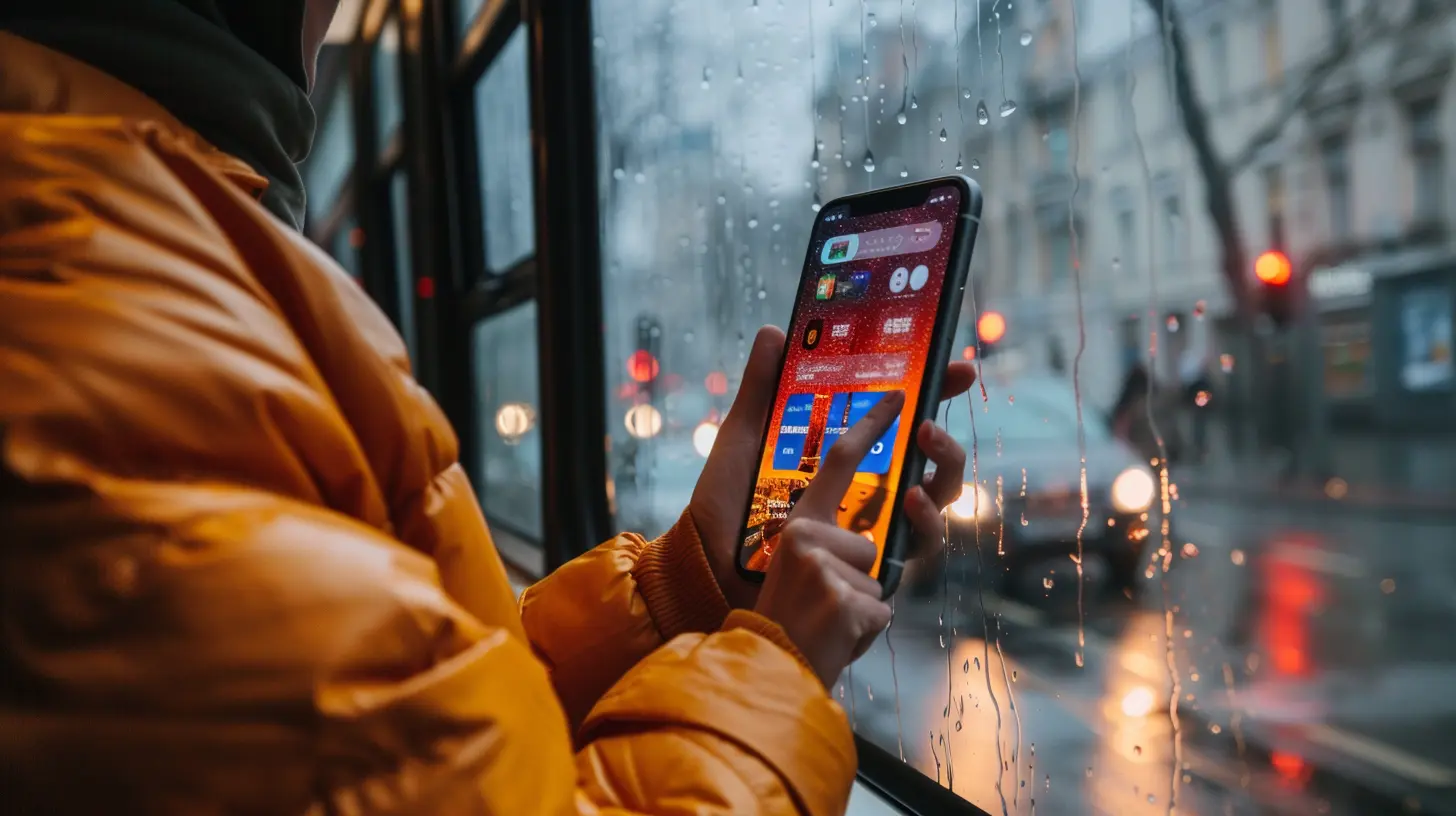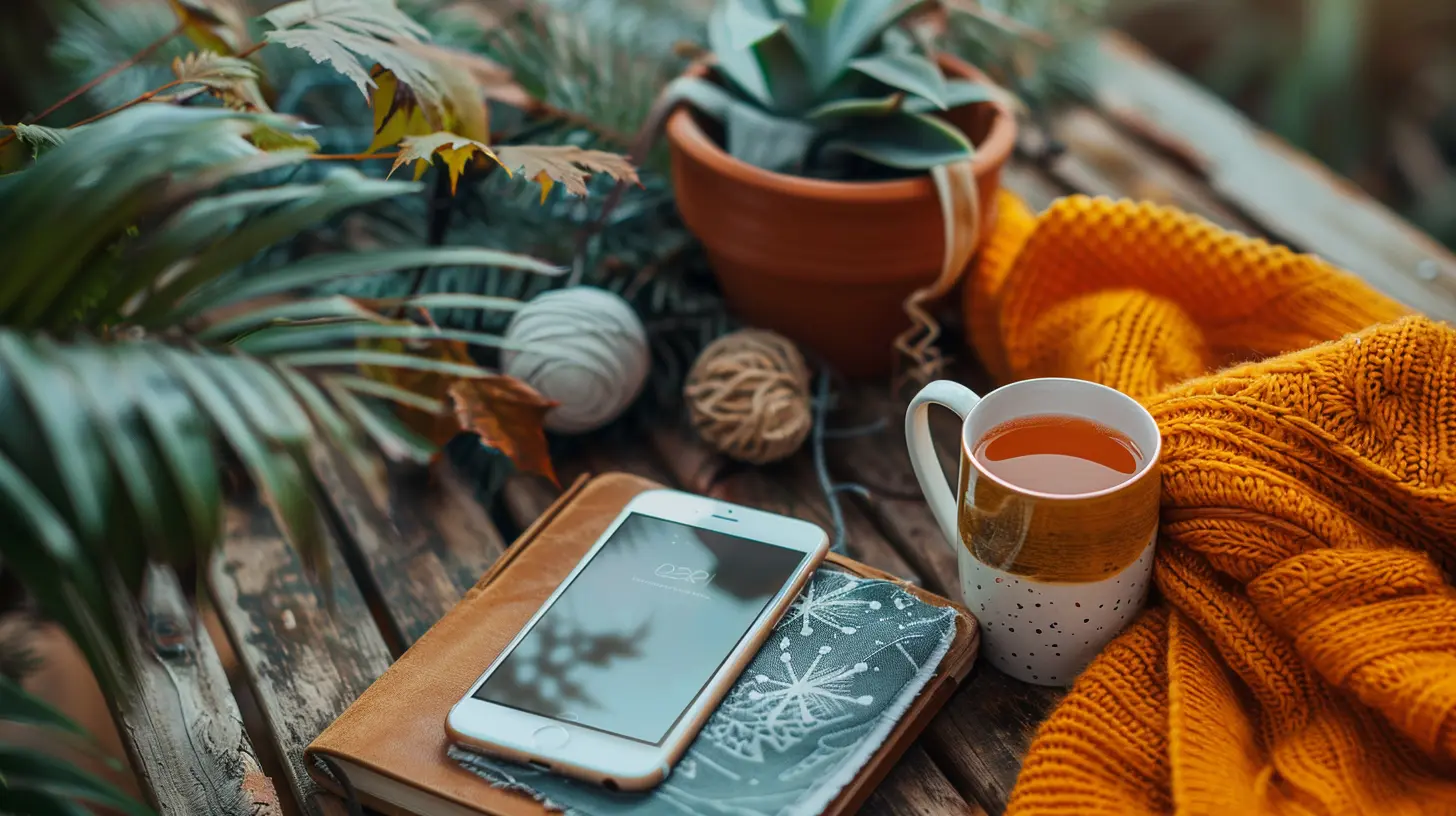Say Goodbye to Jet Lag with These Helpful Travel Apps
9 August 2025
Let’s be honest—jet lag is the uninvited guest that no traveler wants to deal with. You jump off a long-haul flight, all pumped to explore a new city or hit the beach, and then—bam—your body thinks it’s 3 a.m. instead of noon. You're groggy, cranky, and your sleep schedule is a hot mess. But what if I told you that overcoming this annoying side effect of travel is as easy as downloading the right app?
Yep, there are some seriously clever travel apps out there designed to help you fight jet lag like a seasoned globetrotter. Let’s dive into the best ones that’ll get your circadian rhythm back on track faster than you can say, “What time zone am I in?”
What Causes Jet Lag (And Why It’s So Annoying)?
Before we talk solutions, let’s quickly chat about the problem.Jet lag happens when your internal body clock (a.k.a. your circadian rhythm) gets out of sync with the new time zone you're in. Your body still thinks it's in your old time zone, so it keeps running on that schedule. The more time zones you cross, the worse it tends to be.
Symptoms include:
- Exhaustion at weird hours
- Trouble sleeping at night
- Mood swings
- Brain fog & trouble focusing
- Even stomach issues (yeah, your gut has a clock too)
Sounds like a great way to ruin your first few days abroad, right? The good news is, with a little planning and the right tools, jet lag doesn’t stand a chance.
Why Use Travel Apps to Beat Jet Lag?
You could try to tough it out—drink coffee, take naps, walk around in the sun. But that’s a bit like trying to fix a broken watch by shaking it.Travel apps work because they:
- Help you gradually adjust your schedule before and during the trip
- Give you cues for light exposure, sleep, and meals based on your new time zone
- Offer tailored plans based on your travel details (flight times, locations, etc.)
Honestly, it’s like having a sleep coach in your pocket. And who wouldn’t want that?
Best Travel Apps to Combat Jet Lag
Let’s break down the top jet lag apps that travelers around the world swear by. Each one has its own spin, so you can find the perfect buddy for your next long-haul.1. Timeshifter – The Jet Lag App
Best for: Science-backed, personalized plans used by astronauts and pro athletesTimeshifter is the rockstar of jet lag apps. Designed with help from sleep and neuroscience experts, it creates a custom game-plan based on your itinerary, sleep patterns, and chronotype (are you an early bird or a night owl?).
How it works:
Timeshifter gives you step-by-step instructions starting days before your flight. It tells you:
- When to sleep and wake up
- When to seek or avoid light
- When to have caffeine or take melatonin (if you use it)
You literally get a timeline of what to do and when to do it. Follow it closely, and you’ll land feeling less like a zombie and more like a local.
Pros:
- Extremely detailed & personalized
- Modern, intuitive interface
- Used by NASA astronauts (seriously)
Cons:
- Free for the first trip; you’ll need to pay after that
2. Uplift – Feel Good Faster
Best for: Quick, in-the-moment recovery using tapping techniquesUplift takes a totally different approach—based on neuroscience and acupressure. The app guides you through short tapping routines. Yep, you tap on specific points on your head and body while focusing on the time difference. It sounds bizarre, but lots of users swear by it.
How it works:
Before or after your flight, follow the app’s guided session. It’s like giving your nervous system a reset button.
Pros:
- Unique approach
- Compact routines (only take a few minutes)
- No need to plan ahead too much
Cons:
- Some users may find the method a little unconventional
3. Jet Lag Rooster – Free and Simple
Best for: Budget travelers or minimalists who want a no-fuss solutionJet Lag Rooster is a free online tool (and website) that helps you gradually adjust your sleep schedule before your trip.
How it works:
Just plug in your flight info, and it spits out a personalized plan that tells you when to get light exposure and when to avoid it.
Pros:
- 100% free
- Easy to use
- No app download required
Cons:
- Not as interactive as other apps
- Doesn’t account for sleep habits or personal preferences
4. Entrain – For the Science Nerds
Best for: People who love data and don’t mind a slightly complex appMade by researchers at the University of Michigan, Entrain creates lighting schedules based on mathematical models of circadian rhythms. It’s a bit more manual than Timeshifter, but accurate all the same.
How it works:
You input your current and destination time zones, and the app tells you when to seek light or stay in the dark. Precise light exposure is the key to resetting your circadian rhythm.
Pros:
- Developed by scientists
- Based on solid research
- Free to use
Cons:
- Interface could be more user-friendly
- Assumes you're pretty disciplined with following light exposure cues
5. Sleep Cycle – Sleep Smarter, Not Harder
Best for: Improving overall sleep to help the body adapt fasterSleep Cycle isn't specifically designed for jet lag, but it’s a great complementary tool. It tracks your sleep quality and wakes you up during your lightest sleep phase (making it easier to start your day). This can be huge when you're trying to get back on track after a long flight.
How it helps:
Getting better sleep helps your body recover from the stress of flying and adjust faster to a new time zone.
Pros:
- Smart alarm for better wake-up timing
- Great sleep tracking
- Useful for daily life too
Cons:
- Doesn’t create a jet lag plan on its own
Bonus Apps That Help with Jet Lag Symptoms
Apps that directly fight jet lag are amazing, but sometimes you also need helpers for the side-effects. Here are a few:Calm or Headspace – For Meditation and Relaxation
Flying and adjusting to a new place can be stressful. These apps guide you through breathing exercises, meditations, and sleep soundscapes to calm your nervous system.WaterReminder – Stay Hydrated
Dehydration makes jet lag worse. Water reminder apps ping you throughout the day so you don’t forget to sip regularly.MyNoise – Tune Out Distractions
Trying to nap on a plane or sleep in a noisy hotel? MyNoise plays custom soundscapes to help you drift off. Ocean waves, white noise, or the hum of a spaceship—whatever chills you out.Pro Tips on Using Travel Apps Effectively
Just downloading a travel app isn’t enough—you have to actually follow the guidance. Here are some real-world tips to make these apps work for you:- Start adjusting early: If your app tells you to shift your bedtime by an hour two days before your flight—do it.
- Use blue light blocking glasses: At night, avoid bright light, especially from your phone. Some apps will even cue you to dim your lights.
- Time your naps: If your app includes nap suggestions, don’t overdo it. Keep naps short (20-30 mins max).
- Prioritize sun exposure: Natural light is the most powerful cue for resetting your body clock. When the app says “seek light,” step outside.
- Stick to local time on arrival: Don’t fall into the trap of eating or sleeping "when it feels right." Force your body into the new time zone.
Final Thoughts: Jet Lag Doesn’t Have to Ruin Your Trip
Jet lag is frustrating—but it’s not unbeatable. With the help of these clever travel apps, you can take back control of your sleep schedule and hit the ground running, not snoozing. Whether you're traveling for business, adventure, or relaxation, your body deserves to feel good.So next time you're booking a long-haul flight, don't just pack your suitcase. Load up your phone with the right jet lag app and give your internal clock a head start. Your future travel-weary self will seriously thank you.
Safe travels and sweet dreams—no matter what time it is!
all images in this post were generated using AI tools
Category:
Travel AppsAuthor:

Taylor McDowell
Discussion
rate this article
2 comments
Sylas Hughes
Great article! Jet lag can be such a challenge for travelers, but these apps sound like a fantastic way to ease the burden. I especially appreciate the tips on adjusting sleep schedules. Thank you for sharing these helpful resources—here's to smoother journeys and more enjoyable trips ahead! Safe travels!
November 8, 2025 at 5:45 AM

Taylor McDowell
Thank you for your kind words! I'm glad you found the tips helpful. Here's to many smooth and enjoyable travels ahead! Safe journeys!
Justice Jordan
Great tips! These apps truly make travel smoother and help ease the jet lag experience.
August 14, 2025 at 4:09 PM

Taylor McDowell
Thank you! I'm glad you found the tips useful for smoother travels! Safe journeys!


